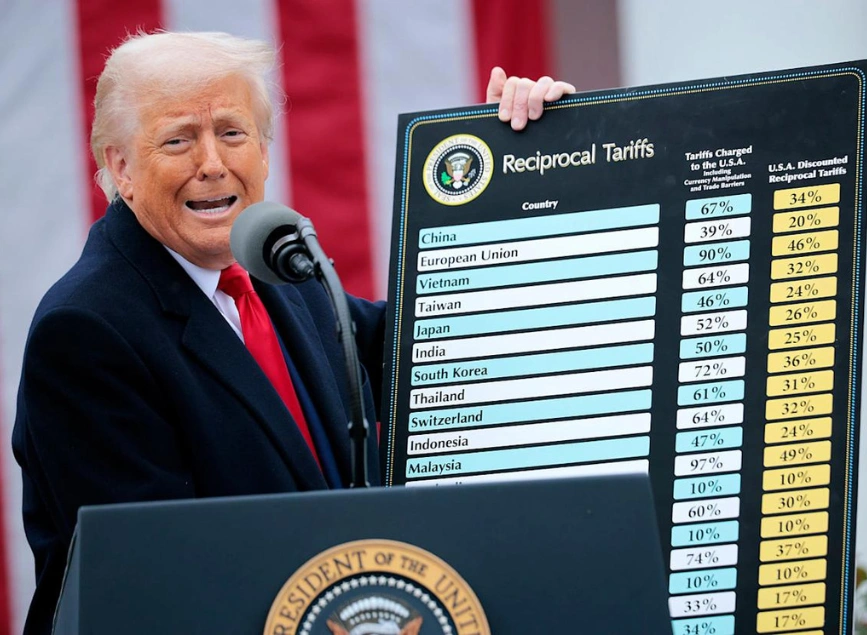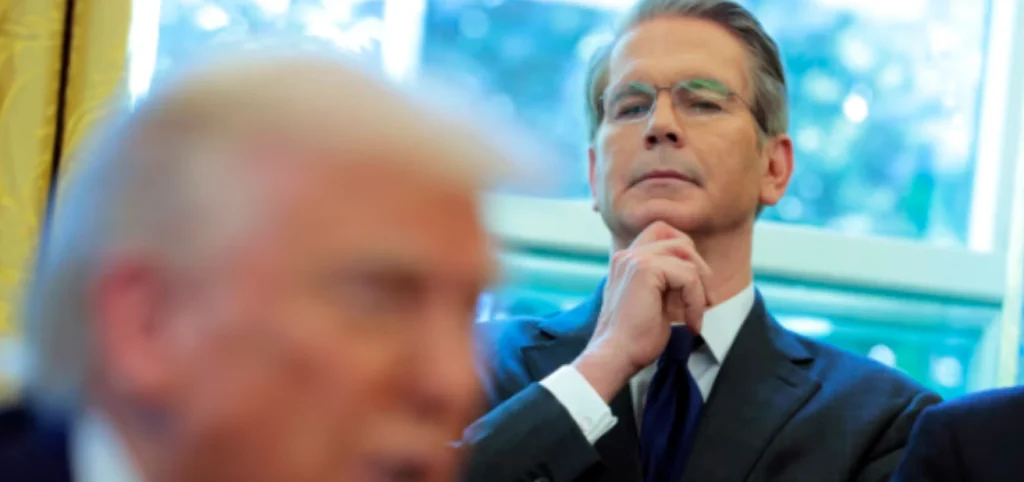
Trump’s Sudden Tariff Reversal: A Strategic Pause or Market-Driven Retreat?
Just hours after new U.S. trade tariffs officially took effect, President Donald Trump made a dramatic pivot by suspending part of the policy for 90 days. This unexpected move came after significant market turmoil and mounting pressure from Wall Street, top economic advisors, and global trade partners.
Market Pressure Forces a Policy Shift
The reversal followed a sharp drop in U.S. stock and bond markets. Financial leaders, lawmakers, and international allies voiced strong opposition, urging the White House to reconsider the tariffs. Trump acknowledged the reaction, stating:
“Everyone got a little nervous… I think it was time to take a calmer approach.”
The Key Role of Treasury Secretary in the Decision
Treasury Secretary Scott Bessent played a central role in the president’s decision. Through a series of meetings, Bessent convinced Trump that a 90-day suspension would open the door for fresh negotiations with trade partners.
Global Readiness for Talks
Over 75 countries have shown willingness to start discussions. Japan is leading the queue for formal talks. Wall Street applied direct pressure on Bessent to find a strategy for de-escalation.
After traveling back to Washington with Trump from Florida, Bessent was granted broader powers to lead the U.S. trade negotiation team.

Market Reactions and Economic Warnings
Following the announcement, U.S. stock markets quickly rebounded. The move was seen as a sign of flexibility and responsiveness to economic signals.
CEO Warnings and Trump’s Response
JPMorgan CEO Jamie Dimon warned that continuing with the aggressive tariff policy could push the economy toward recession. In response, Trump made it clear that avoiding economic downturn was a priority:
“BE COOL! Everything is going to work out well. THIS IS A GREAT TIME TO BUY,” he tweeted.
Why Markets Fear Tariff Policies
Heavy tariffs can have serious ripple effects on the economy. Here’s why markets react so strongly:
Higher consumer prices due to imported inflation
Disruptions in global supply chains
Lower profits for companies in key sectors like automotive and technology
Reduced investor and consumer confidence
These consequences create instability, which markets are highly sensitive to.
Read More: Trump’s Tariffs: Growing Concerns Among Republicans
Final Thoughts: Tactical Pause or Genuine Retreat?
Many analysts believe the sudden shift is part of a broader strategy—an attempt by Trump to put maximum pressure on trade rivals like China and others to bring them to the negotiating table.
The Risk of Instability
However, experts also warn that frequent and unpredictable policy changes from the White House could weaken market confidence and hurt long-term business planning.
What’s Next?
All eyes are now on the upcoming trade negotiations. It remains to be seen whether this 90-day pause marks a true change in policy or is simply another move in Trump’s high-stakes bargaining game.
Share
Hot topics

Trading with price action
When they start, most traders will believe that they must discover the ideal indicator for success. At otet markets, we see this every day.They test a variety of indicators, including...
Read more




Submit comment
Your email address will not be published. Required fields are marked *